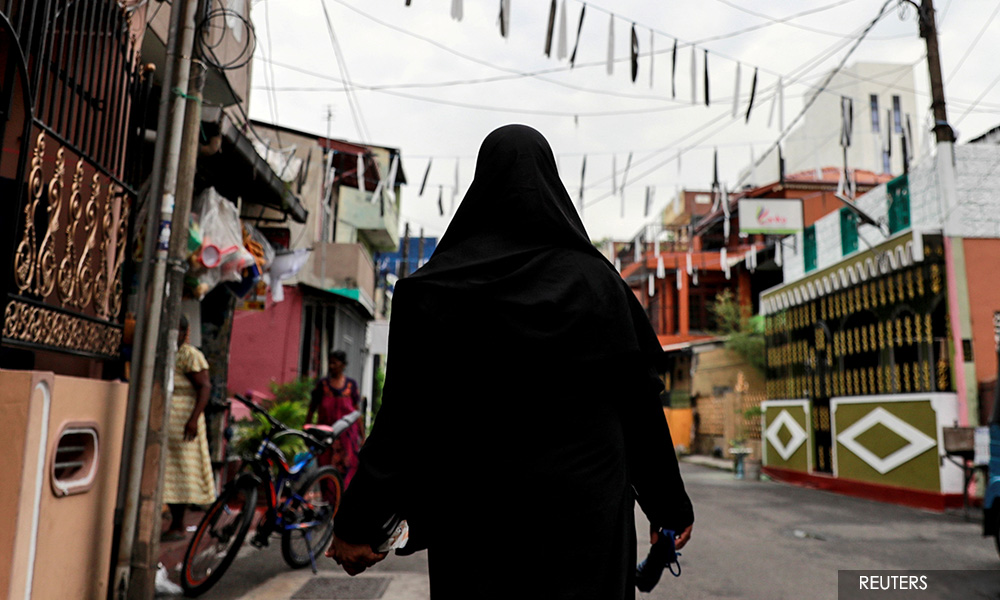Muslim homemakers have right to claim matrimonial property
A Muslim divorcee or widow can stake a claim to matrimonial property even if she was not earning an income and the property was acquired solely by her husband during the tenure of their marriage, said Syariah law experts.
Many Muslim women, however, are not aware of this. Even if they are aware, many of them shy away from upholding their right although they are entitled to a portion of the matrimonial property.
Matrimonial property refers to property or assets, both movable and immovable, acquired by either or both the husband and wife during their marriage.
Syariah lawyer Khairul Fahmi Ramli said unemployed wives have the right to claim matrimonial property after their divorce or death of their husband based on their indirect contributions to the household.
“In this case, indirect contributions refer to the effort put in by the wife to manage the family and children when the husband goes to work,” he told Bernama, adding that the scope of managing the household and family also includes the wife’s role in taking care of the husband’s property and providing him with the support and encouragement to succeed in his career.
“As such, his unemployed (homemaker) wife’s contributions in terms of managing the family and property have made it easier for the husband to go out to work.”
Leaving it to fate
Unfortunately, even in these modern times, there are women who do not fight for what is rightfully theirs, preferring instead to leave it to destiny and accept whatever comes their way.
According to Khairul Fahmi, one of the main reasons many divorcees or widows do not stake a claim to the matrimonial property is the lack of knowledge on their rights.
“Women in both categories (divorcee or widow) are eligible to claim (their portion) of the matrimonial property. In fact, in the case of a widowed woman, matrimonial property claims must precede the division and distribution of the (late husband’s) estate via the 'faraid' method,” he said.
(Faraid is a section of the Islamic law that deals with the distribution of the estate of a deceased person among his heirs.)
He said some women also deliberately refrain from claiming their portion of the matrimonial assets to avoid conflicts with their former or late husband’s family and being labelled a gold digger.
Khairul Fahmi, who is also deputy secretary of the Kedah Syariah Lawyers Association of Malaysia, said another factor discouraging women from staking their claim to the matrimonial property is the cost of engaging a lawyer to file their claim in court, as well as the time-consuming legal process.
“Claiming matrimonial property is usually not worthwhile when compared to the cost of hiring a lawyer and filing a case in court.
“Matrimonial property claims usually take a long time (to reach a settlement in court) due to the lengthy procedures involved. There’s also a backlog of such cases in court so it will take months or more than a year to get a ruling,” he added.

Lack of knowledge
Lawyer Mohammad Amir Asyraf Abd Mutalib, who also handles Syariah cases, concurred with Khairul Fahmi that the lack of knowledge on their rights has led to many Muslim women not claiming their portion of the matrimonial property after their divorce or death of their husband.
While they are still married, these women are content with leading a happy life with their husbands and have no desire to find out about their rights as a spouse.
“Only when they are divorced or become a widow do they feel that they have rights that can be claimed to ensure their livelihood,” said Mohammad Amir Asyraf, adding that many couples lack knowledge on Syariah Court and family-related issues.
He said some women also felt that they are not entitled to claiming their share of the matrimonial property as they themselves did not acquire any of the property or asset.
“They feel they did not contribute to the (purchase) of the property and as such, are not entitled to it. But then, matrimonial property is valued in accordance with the contributions made directly and indirectly,” he added.
Referring to the case of a widow who claimed her portion of the matrimonial property, Mohammad Amir Asyraf said her husband’s heirs included their children as well as his children from a previous marriage. The matrimonial property, in this case, consisted of a house that belonged to the late husband.
Eventually, the widow was able to claim half of the property with the remaining half divided among her husband’s heirs.
Urging divorcees and widows to be well versed in their rights with regard to matrimonial property, Mohammad Amir Asyraf said all they have to do is prove that the property was acquired by them when they were still married and also the extent of their contribution.
Direct contribution can be summarised as the joint purchase of the property, with the husband and wife sharing the capital payment and the cost of maintaining the property concerned, he said.
As for indirect contribution, it refers to the wife’s efforts in maintaining the property, such as cleaning, washing and tidying the premises and keeping it safe.
“This shows the wife has rights although her contributions are made indirectly,” he said, adding that women who have problems claiming their share of the matrimonial property should consult a Syariah lawyer for advice.
Those without the means to hire a private-sector lawyer can seek the assistance of the government’s Legal Aid Bureau, he added.
- Bernama
✍ Credit given to the original owner of this post : ☕ Malaysians Must Know the TRUTH
🌐 Hit This Link To Find Out More On Their Articles...🏄🏻♀️ Enjoy Surfing!




















Post a Comment